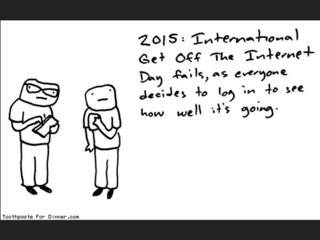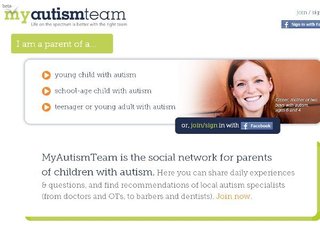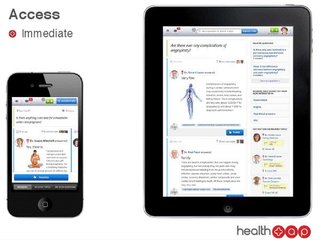
Pew: 88% of caregivers go online for health information
One in three U.S. adults are caregivers, and the Web is a powerful information portal

Having a medical condition that limits your ability to perform common daily tasks can be physically and socially isolating. But there’s another side to that that doesn’t get a lot of attention: the caregiver. If you’ve ever had to take time off from work to care for an aging parent, injured spouse, or disabled child, you’ve probably experienced quite a bit of isolation as well. So it makes sense that caregivers are more likely than others to turn to the Internet for information.
The Pew Internet & American Life Project released Thursday the findings of a recent survey that reveals that of the 88% of caregivers with Internet access go online to look up health information. By comparison, 76% of non-caregivers use the Internet to find health information.
Some 30% of U.S. adults are caregivers. Of those, 24% are caring for another adult, while 3% are caring for a disabled child and another 3% are caring for both a child and an adult. And today, they have more informational resources at their fingertips than at any other time in history.
For example, the CDC’s latest autism report pegs the diagnosis rate at one out of every 88 children. That’s one out of every 54 boys. But today, it’s easier than ever for a family to go online to find everything from in-home support services and therapies to pediatricians who specialize in autism, the best special education options, and even sports and outdoor activities that accommodate kids with special needs.
There’s also the social element. Some 44% of caregivers in the survey said they’ve read someone else’s personal health story online, compared with 29% of non-caregivers. And 28% of caregivers said they’ve used Facebook or Twitter to follow friends’ health updates, compared with 21% of non-caregivers.
Interestingly, the survey found that caregivers are more likely to be somewhat better educated and more likely to be middle-aged than non-caregivers. But statistical analysis showed that when comparing people of similar age, education, and other demographic characteristics, being a caregiver in and of itself made a person more likely to be an Internet user.
Naturally, caregivers are more likely than others to use the Web to research things like drug trials and reviews of doctors, but the difference is actually a little surprising. Some 38% of caregivers with Internet access said they’ve used the Internet to read reviews of drugs and medical treatments, compared with just 18% of non-caregivers. Additionally, 21% of online caregivers said they’ve used the Web to consult online rankings and reviews of doctors, compared with 13% of non-caregivers. I’m actually surprised both of those numbers are so small. I thought everyone read doctor reviews…
The survey shows that caregivers and those suffering from medical conditions are no longer stuck in a social and informational vacuum. The Web now empowers anyone with access to find the information they need to make the health choices that are right for them.
Several companies have been created with this need in mind. HealthTap is one such startup, created to help patients find personalized answers to their health questions. MyAutismTeam is a network created just for families of autistic children to help them find doctors, teachers, therapists, and other families.
Image source: sandiegocaregiversblog.com
Related News


Pew: 17% of people mostly surf the Web from their phone

Families with autism can now connect on MyAutismTeam

Pew study: Social networks and health info

HealthTap is your personalized health source

